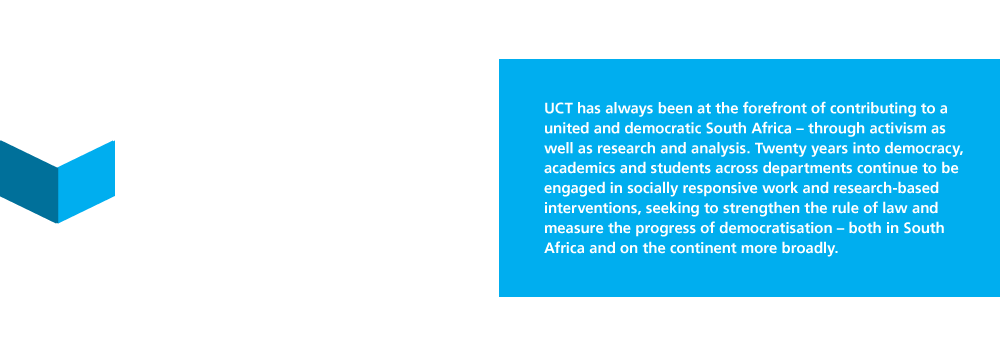Bringing South Africa’s vision for democracy to life
The year 2014 commemorates the 20th anniversary of South Africa’s first free and fair election, marking the country’s transition to democracy. One of the milestones of this peaceful transition, which ended the disenfranchisement of the majority of South Africans and the human rights abuses of apartheid, was the adoption of South Africa’s new Constitution. Never envisaged as a once-off declaration, but rather as the blueprint for South Africa’s ongoing transformation, the Constitution expresses the country’s vision for a democratic and open society, founded on social justice and fundamental human rights, in which government is based on the will of the people and everyone is equal before the law.
The values of inclusiveness, equality, accountability, transparency and the commitment to the rule of law that shape South Africa’s Constitution make up the criteria summed up by the term “good governance”. Good-governance standards are used by international development agencies, watchdog non-governmental organisations (NGOs) and academics alike to measure the progress of democratisation.
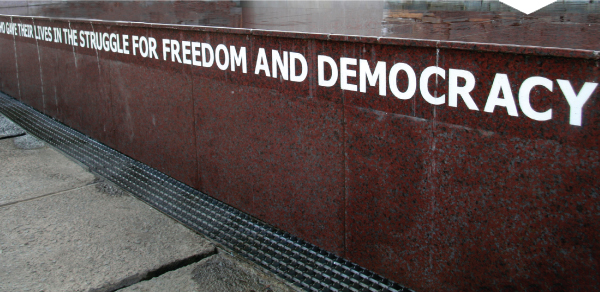 The standards of good governance are also an important focus of research at UCT. Across the university, researchers are engaged in measuring and analysing a wide range of good governance indicators. Their work explores ways to strengthen the rule of law. It tries to understand the factors necessary for accountable leadership that champions citizens’ rights and is fiscally responsible. The realities of equality are interrogated through, for example, the question of access to land, women’s rights and socio-economic upliftment. The role of inclusiveness is explored and public participation, civil society and media, which give people a voice, are supported and encouraged. Researchers question how transparency and the free flow of information assist in fighting corruption and protecting whistleblowers, and Africa-wide research investigates how societies can create strong legislatures and examines the impact of elections on attitudes about democracy.
The standards of good governance are also an important focus of research at UCT. Across the university, researchers are engaged in measuring and analysing a wide range of good governance indicators. Their work explores ways to strengthen the rule of law. It tries to understand the factors necessary for accountable leadership that champions citizens’ rights and is fiscally responsible. The realities of equality are interrogated through, for example, the question of access to land, women’s rights and socio-economic upliftment. The role of inclusiveness is explored and public participation, civil society and media, which give people a voice, are supported and encouraged. Researchers question how transparency and the free flow of information assist in fighting corruption and protecting whistleblowers, and Africa-wide research investigates how societies can create strong legislatures and examines the impact of elections on attitudes about democracy.
Much of this research takes place across disciplines and departments, as well as other institutions and organisations, drawing on cross-sections of expertise and knowledge to bring South Africa’s vision for democracy to life.
Strengthening the rule of law
The Democratic Governance and Rights Unit (DGRU), an applied research unit within the Department of Public Law, is an exemplar of the university’s integrated approach to research. Established in 2004 in order to further increase the Faculty of Law’s contribution to democracy and human rights in South Africa and the region, the unit is primarily concerned with the relationship between rights and governance in a way that Vanja Karth, DGRU programme manager, describes as “quality scholarly research informing the advocacy work done in collaboration with civic organisations”.
Karth runs the Southern African Development Community (SADC) Judges’ Support Programme, in partnership with Oxford University’s Pro Bono Publico group. The aim of the project is to strengthen the rule of law and the independence of the judiciary in the region through the ongoing support of judges, by providing comparative research assistance. UCT postgraduate students get paid to do research for SADC judges and also get a chance to do clerking internships at courts during their vacations. Apart from the invaluable support this lends to the judges, the project offers the students practical experience of the kind of work they will be expected to perform when they enter the workplace. It also affords SADC judges the opportunity to complete a four- to six-week research stay at the Faculty of Law.
In 2013, the DGRU hosted the first SADC Judges’ Forum, offering judges the space to discuss and debate issues of critical concern in an intellectually safe environment – an initiative that has won international recognition in the form of an award and a financial grant from the World Justice Project.
The Judges’ Support Programme and the rule of law in the region were given a further boost by the decision in 2013 to house the Southern African and the African Legal Information Institutes (LIIs) within the DGRU. The two LIIs boast the largest online free-access collection of case law and legislation in Southern and sub-Saharan Africa. As legal materials in the region are expensive and hard to come by, the project opens up the possibility for any interested parties to source legal information from their computers and mobile devices at a reduced cost. There is a collaborative plan to provide offline access to African judges who struggle to obtain legal resources. This will enhance the level of research, resulting in improved judgments, and help to speed up access to justice. Providing the LIIs with a scholarly home also ensures that the legal materials are reliably researched and edited, which will, in turn, benefit civil society and interested citizens.
Transparency and judicial independence
Strengthening the judiciary in this way is of great importance for democracy and good governance – not least because, too often, this crucial third branch of government comes under attack.
In South Africa, as in many democracies, two of the government’s branches – the legislative and the executive – are accountable to voters. All but two cabinet ministers need to be appointed from among members of parliament. Recently the fact that the third branch, the judiciary, is not elected has been used in attempts to undermine judges’ legitimacy, with the allegation that judicial officers do not have a democratic mandate. The argument has mainly been raised when courts have been critical of other branches of government. On the other hand, opposition parties are concerned that the ruling party might abuse its power to “pack” judicial posts with pro-executive candidates.
This is not just a theoretical worry: appointments are made on the basis of a recommendation by the Judicial Service Commission (JSC) which, in the current political balance in South Africa, can be dominated by members of the ruling party. Independent observers agree that, in order to maintain a separation of powers, the appointment process followed by the JSC needs to be as transparent and accountable as possible.
UCT can play a vital watchdog role in this regard, and DGRU researchers Tabeth Masengu and Chris Oxtoby do just that by compiling detailed reports of the judicial records of candidates shortlisted for judicial appointment. This assists the JSC and provides civil society and other interested stakeholders with an objective basis on which to assess candidates’ suitability for appointment to the bench. The researchers monitor the JSC interviews and comment on issues such as fair questioning and the time allocated for candidate selection. The DGRU argues that allowing for a longer time between the announcement of the candidate shortlist and the interviews taking place would improve good governance by facilitating greater public participation in the judicial appointments process.
The data collected also form the basis for detailed and relevant research into the question of gender equity in judicial appointments. Women are under-represented on the bench, and the unit’s work focuses on identifying and removing the barriers to gender transformation in the judiciary in South Africa.
The two Legal Information Institutes housed at UCT boast the largest online free-access collection of case law and legislation in Southern and sub-Saharan Africa.
Further concerns around judicial independence in South Africa were raised in 2013 when the Department of Justice and Constitutional Development awarded a tender to review the jurisprudence of the Constitutional Court and the Supreme Court of Appeal. The DGRU is conducting a parallel review, which aims to fill the gaps in the government brief. The unit’s research centres on the courts’ decisions during the period from 2009 to 2013, as well as government’s compliance with instructions contained in court orders. At the same time, the research also looks into briefing patterns of advocates in the light of the mandate for transformation in the legal system regarding race and gender composition.
Transformation and women’s empowerment
In 2013, United States President Barack Obama visited UCT as part of his Africa trip. In his remarks to a full house in Jameson Hall, Obama reflected on the new model of partnership between the United States and Africa, and the importance of good governance and its relationship with economic development: “We’re interested in investing, not in strongmen, but in strong institutions: independent judiciaries that can enforce the rule of law; honest police forces that can protect the peoples’ interests instead of their own; an open government that can bring transparency and accountability. And, yes, that’s why we stand up for civil society – for journalists and NGOs, and community organisers and activists, who give people a voice. And that’s why we support societies that empower women – because no country will reach its potential unless it draws on the talents of our wives and our mothers, and our sisters and our daughters.”
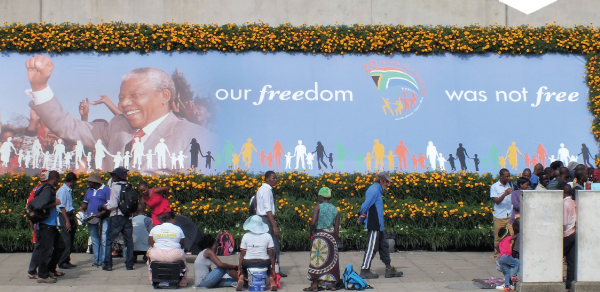
Obama’s words speak directly to the work done by the Law School’s Centre for Law and Society (CLS). The CLS has identified South Africa’s rural women as particularly vulnerable and its Rural Women’s Action Research (RWAR) programme consists of various projects to assist in protecting and realising women’s rights. A recent successful example of its work was the lapsing of the Traditional Courts Bill, which threatened equal citizenship rights and women’s rights in particular. When the bill was tabled, the CLS held a workshop in rural areas to find out about citizens’ experiences regarding traditional courts and informing them of the implications of the bill. Together with partners in the Alliance for Rural Democracy, CLS made it possible for rural citizens to participate in the public participation process held in the provinces, as well as making submissions in parliament. CLS senior researcher Dr Mbongiseni Buthelezi describes the centre’s role as “one of research, mobilisation and strategic litigation, as well as speaking with the people rather than on their behalf”.
The bill was intended to apply in the geographical areas of the previous bantustans: arbitrarily delineated “homelands” created by the apartheid government where African people had to live. By defining areas where customary law is practised, but structures are inherited from the pre-democratic era, the bill would have further affirmed pre-existing boundaries. If the bill had become law, rural citizens in those areas would have been subject to a separate legal system with drastic powers vested in non-elected and non-accountable traditional chiefs. The bill would have concentrated power in the hands of senior traditional leaders and added powers that they did not traditionally hold under custom, such as being able to impose sanctions of forced labour or to deprive citizens of land rights without any right to appeal. Research by the CLS showed that women’s rights would have been severely disadvantaged by the law, as they would have not been able to represent themselves in traditional court proceedings. There was no provision for legal representation and there were restricted options to solve conflicts through the normal court system. Because of the opposition encountered from rural women, the National Council of Provinces, South Africa’s second legislative chamber, let the bill lapse.
Another bill that the CLS has identified as problematic is the Restitution of Land Rights Amendment Bill. Passed just before the 2014 national elections, the bill, which aims to empower traditional leaders, will be used to bolster the power of traditional leaders at the expense of those who were forcibly removed during apartheid, argues Dr Aninka Claasens, director of RWAR. Dr Claasens points out that large-scale transfers of land to traditional leaders will undermine the tenure security guaranteed under the Constitution for the most vulnerable, especially rural women. Land reform is an ongoing issue in South Africa. Threatening women’s access to land perpetuates the existing inequality and adds to women’s disenfranchisement in the context of traditional governance, she says.
The CLS is also involved in researching the implications of the Traditional Affairs Bill with its long-term partners from the Legal Resources Centre. The bill is another example of a law trying to centralise power with traditional leaders and exaggerating traditional leaders’ roles in interpreting and shaping custom, instead of custom being defined by practice from the ground up.
In related work, the CLS’s New Mining Programme researches and monitors mining agreements entered into by traditional leaders ostensibly representing rural people. The research has found that some traditional leaders are not accountable to their community, either in terms of decision-making or in terms of fiscal accountability. They enter into mining agreements without consulting the community and don’t share the substantial licensing fees or royalty payments they receive. These traditional leaders are skewing customary governance for their own advantage and preventing the community from challenging the decisions made on their behalf.
Accountability and the fight against corruption
Supporting authorities who don’t serve their people and are not accountable carries the risk of fostering corruption. In his speech at UCT, President Obama pointed out that fighting corruption was a matter of self-interest and economics: “Economies with governments that respect the rights of their citizens and abide by the rule of law do better, grow faster, draw more investment than those who don’t. That’s just a fact.”
the percentage of economic crimes in South Africa detected through whistleblowing has more than halved in the past seven years.
It is concerning, then, that in South Africa, people who blow the whistle on corruption in government or the private sector not only risk being sidelined in their work or losing their jobs, but frequently also have to fear for their lives. As a consequence, the percentage of economic crimes in South Africa detected through whistleblowing has more than halved in the past seven years. The National Planning Commission is the latest body to have identified changes to whistleblower legislation as a prerequisite to good governance. Suggestions for reform include improving the protection of whistleblowers and making them eligible for financial rewards linked to the amounts involved in the crime. The DGRU’s research on these so-called “bounty provisions” helped to frame the discussions at a 2013 round table that brought together government, state institutions supporting constitutional democracy and civil society organisations. The content and outcome of the debate fed straight into refining the DGRU’s further research.
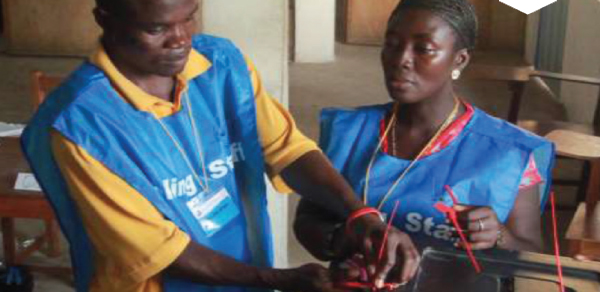
In South Africa in the past year, the Nkandla scandal (see far left) has seen the debate about corruption and accountability loom large in the public consciousness. The reluctance to deal with the Nkandla allegations, combined with the passing of the contentious Protection of State Information Bill, has raised questions nationally and internationally around South Africa’s commitment to transparency and good governance.
Once again, UCT has not shied away from playing a key role in this debate. One of the most important independent tools measuring openness in South African society is the Open Society Foundation’s Open Society Monitoring Index. The collection and analysis of the index’s empirical data is conducted by the Democracy in Africa Research Unit (DARU), which is housed in the Centre for Social Science Research (CSSR) in the Faculty of Humanities. The index was launched in 2010 and publishes measurements of accountable and responsive government, free flow of information, adherence to the rule of law and fiscal accountability.
Democratic institutions and the public perception of democracy
Pointing to the importance of one of these measurements, the free flow of information in democracies, Professor Robert Mattes, DARU director, and Carlos Shenga, a PhD student and director of the Centre for Research on Governance and Development (CPGD) in Mozambique, published research in 2013 that showed that low-information societies, such as Mozambique, where the research was conducted, are likely to produce uncritical citizens and a low demand for democracy. Educational opportunities, independent media and electoral reforms towards a constituency-based system are identified by the researchers as key factors that might strengthen the demand for democracy in such societies.
A recent analysis by DARU of Afrobarometer data – another UCT-linked research project that measures public attitudes toward democratic and economic reform in 35 African countries – suggests that good governance, as embodied by the freeness and fairness of elections, has a far more important impact on citizens’ perceptions of democracy than does economic performance or personal material well-being. It would appear that flawed elections reduce the demand for further democratisation – an important insight against the background of declining electoral quality in Africa after a period of relative improvement.
Afrobarometer is run in partnership with several African institutions, of which UCT, through DARU, is one. DARU is increasingly responsible for the scientific parts of the project, especially sampling, fieldwork and data management; it also leads capacity building efforts in the project, and runs an annual CSSR-Afrobarometer Summer School at UCT, aimed at young researchers from Afrobarometer partner organisations, but also attended by growing numbers of UCT students. The Summer School is unique in the sense that it teaches research methods and social statistics, but also offers modules on substantive theories of democracy and governance in Africa.
Every year, DARU offers bursaries to approximately 10 UCT postgraduate students, who act as research assistants on the project and also receive hands-on experience in data entry and data analysis, as part of its effort to strengthen systematic and quantitative research. The students are able to use the data as part of their honours, master’s or doctoral research.
Afrobarometer data provides a fascinating insight into how Africans themselves view democracy. The latest round of data, for instance, illustrate that seven out of 10 Africans want demoracy and that demand for democracy has climbed from 36% in 2002 to 51% in 2012. However, less than 43% currently consider their country to be a democracy. The data will soon be used to contribute to and review the Index of African Governance compiled by the Mo Ibrahim Foundation, which wants to supplement its objective data on government performance with subjective data on citizens’ experiences and evaluations. It has thus helped Afrobarometer to expand its work into other African countries.
Public opinion data from Afrobarometer also feeds into research by the African Legislatures Project (ALP) – a joint project between DARU and Bridgewater State University in the USA, which attempts to identify the key factors that influence the strength of legislative institutions.
low-information societies are likely to produce uncritical citizens and a low demand for democracy.
In order to better understand the role of legislatures in Africa’s new democracies, ALP has collected data from and about members of parliament (MPs) in both constituency-based and party-representation systems across Africa. Research published in 2013 and 2014 shows that strong African parliaments (ie those that are able to check the executive, amend and delay government-initiated legislation and run their own institution) are characterised by strong constitutional powers, where MPs see themselves as “institutionalists” and prioritise developing legislation and conducting oversight over representing their constituency or their party. These factors turn out to be more important determinants of a legislative chamber’s strength than infrastructure or technical support.
Equality and inclusiveness
While free and fair elections and the free flow of information may influence citizens’ attitudes towards democracy, they are not in and of themselves sufficient conditions for a healthy democracy. Experience has shown all too vividly that continued or exacerbated social inequality in a country can lead to citizen dissatisfaction and increased political instability. This has become evident in the intensifying service delivery protests and labour strikes that have marked the 2013/14 period in South Africa. Africa, by and large, continues to be a continent characterised by extremes and South Africa is leading the way. It is currently regarded as the most unequal society in the world with a Gini coefficient of around 0.69.
One of the problems is that economic growth on the continent does not necessarily lead to improving people’s lives, as is evident from the Afrobarometer research in 2013. An analysis of the data co-published by DARU staff suggests that the high growth rates measured in some African nations in recent years have not, in fact, led to a reduction in the severe poverty experienced by the majority of those countries’ citizens. Growth has failed to create sufficient new jobs and the benefits have accrued to only a few individuals. In fact, there is evidence that, rather than improving the situation, such rapid economic expansion may exacerbate social inequalities and increase political instability.
No country will reach its potential unless it draws on the talents of our wives and our mothers, and our sisters
and our daughters.
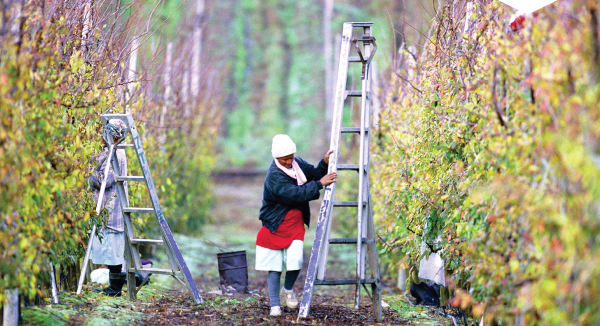 Another UCT unit working on the concern around the continued inequalities apparent in South African labour and land issues is the Centre for African Studies (CAS). Professor Lungisile Ntsebeza, CAS director and AC Jordan Chair of African Studies, who holds the DST/NRF SARChI Chair in Land Reform and Democracy in South Africa, is teaching postgraduate courses in development, democracy, justice and inequality in South Africa and on the African continent. While his published work in 2013 focused on land reform in South Africa and the undoing of a century of dispossession, he is also instrumental in forging research partnerships with other African universities.
Another UCT unit working on the concern around the continued inequalities apparent in South African labour and land issues is the Centre for African Studies (CAS). Professor Lungisile Ntsebeza, CAS director and AC Jordan Chair of African Studies, who holds the DST/NRF SARChI Chair in Land Reform and Democracy in South Africa, is teaching postgraduate courses in development, democracy, justice and inequality in South Africa and on the African continent. While his published work in 2013 focused on land reform in South Africa and the undoing of a century of dispossession, he is also instrumental in forging research partnerships with other African universities.
In 2014, researchers and students at CAS, including Professor Ntsebeza, have teamed up with the Surplus People Project (SPP) to do research on the conditions of farm workers and dwellers on commercial and game farms. The project focuses on labour and land issues, including the recent strikes in South Africa’s agricultural sector. It will engage farm workers and activists involved in the struggle for democracy and the socio-economic upliftment of rural citizens, as well as government officials who formulate and implement policies that have far-reaching implications for society at large.
To mark South Africa’s two decades of democracy, CAS is organising various review processes, including a colloquium, about the pace and extent of change and transformation. Topics focus on education and labour issues, as well as the land and language question.
democracy as lived experience
By providing such spotlight assessments, in addition to the ongoing research into judicial independence, women’s rights, accountable governments, the free flow of information, elections and equality, CAS and the other UCT centres all attest to the fact that democracy will remain a concept on paper if it does not translate into the lived reality experienced by citizens. A guaranteed right to freedom of speech is meaningless if people don’t exercise the right.
The research conducted at UCT contributes to this body of free speech, which assists Africans to participate in and create united and inclusive societies. The intellectual capital, research and teaching across UCT are helping to make South Africa’s vision for an open and just society come alive, and will, it is hoped, continue to make a significant contribution to deepening the democratisation in the region as it moves into its next 20 years of democracy.


